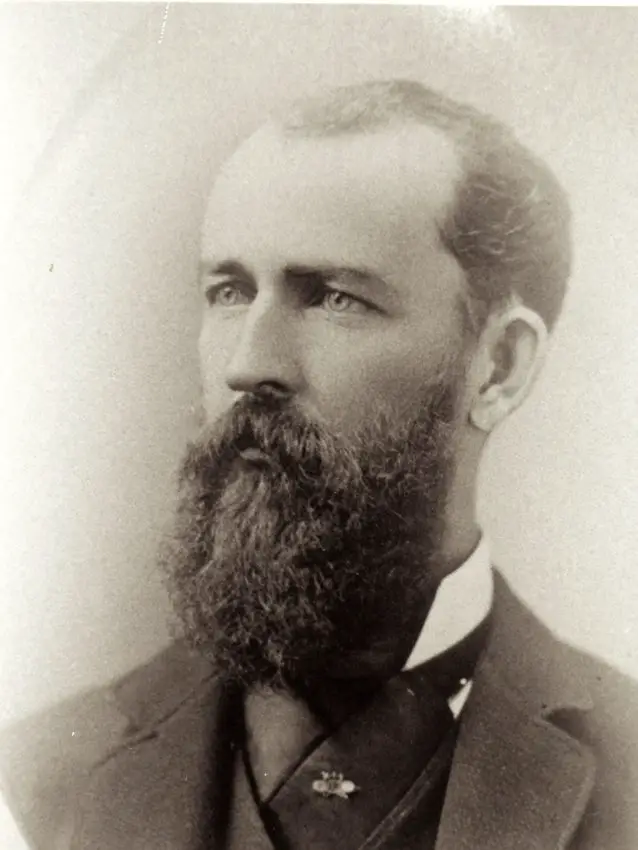Thomas Bracken is the poet to whom the credit goes for writing ‘God defend New Zealand’.
New Zealand surprisingly has two National Anthems; ‘God Save the Queen’ and ‘God defend New Zealand’. They are both of equal status.

Table of Contents
Early Life of Thomas Bracken
Born in Ireland, somewhere between 1841 and 1843, Thomas Bracken was the son of Margaret Kiernan and Thomas Bracken. The actual date of his birth is not verified. His mother died in 1846 and soon after, he lost his father in 1852. His father had been a postmaster.
After the death of his parents, his aunt took care of him until he was 12 years old and then he was sent to Australia to his uncle John Kiernan who was a farmer at Moonee Ponds, near Melbourne.
He worked on his uncle’s farm for about a year and then quit it to work as an apprentice to a chemist in Bendigo. After about a year and a half, he started working on a station at Colbinabbin, now a small town in Central Victoria. Here, he became a proficient horseman and a shearer.
It is during this period that he started writing verse and finally in 1867, he published a volume, ‘The Haunted Vale’. It was the start of his career as a poet.
Literary Career
Thomas Bracken arrived in New Zealand in early 1869. A volume of a selection of poems that he had written when he was in Australia was published here. He continued writing along with his odd jobs and published a small book of verses, ‘Flights among the Flax’. This book was appreciated in the literary circles and he was awarded the Otago Caledonian Society’s prize for poetry.
Literary Works
Behind the tomb and Other Poems (1871)
The Land of the Maori and the Moa
Musings in Maoriland (1890)
Lays and Lyrics: God’s Own Country and Other Poems (1893)
Not Understood and Other Poems (Posthumous collection)
Dear old Bendigo (1892)
Pulpit pictures (1876)
God defend New Zealand (his most popular poem)
Marriage
On 1st February 1883, Thomas Bracken Married Helen Hester Copley, the daughter of a barrister. A son, Charles Copley was born to them on 17th August 1885.
Other Accomplishments of Thomas Bracken
Journalism
Thomas Bracken aimed to enter the journalism field and together with John and Alexander Bathgate, he founded a weekly newspaper, the Saturday Advertiser, Time-table, and New Zealand Literary Miscellany in 1875. Under Bracken’s editorship, the newspaper was immediately popular and attained a circulation of about 7000.
By 1879, it was being issued as the weekly edition of Modern Herald, and the title was soon changed to the New Zealand Public Opinion, Sportsman, and Saturday Advertiser.
In the early 1880s, he resigned as the editor of the Morning Herald when the paper attacked Robert Stout, a politician.
Political Career
Thomas Bracken entered politics in 1879 because he supported George Grey and his acquaintance with Robert Stout. He was also concerned about the underprivileged. He lost the first attempt in 1879 when he stood for the election for Parliament for the City of Dunedin.
He successfully won the parliamentary seat in 1881 and represented Dunedin Central and was a parliamentarian for 3 years.
He became a member of the house again in 1886 in a by-election. He was a committed Irish Nationalist and a passionate speaker who did well as a politician. However, the parliamentary session lasted only for seven weeks, and he didn’t seek re-election after the dissolution of the House.
Pseudonyms
Thomas Bracken often used the pseudonyms ‘Paddy Murphy’ and ‘Didymus’ but he gained immense popularity with his original name.
Popularity
Despite having published several volumes, Thomas Bracken is popularly known for his poem ‘God defend New Zealand’.
It was presented to Queen Victoria at her diamond jubilee celebration.
It gained popularity when the New Zealand Saturday Advertiser published it under the title ‘National Hymn’ on 1st July 1876, and announced a competition and asked people to compose the music for the poem and declared that the winner would get 10 guineas.
3 German Composers were appointed as judges to judge the 12 entries. The score written by John Joseph Woods under the pseudonym ‘Orpheus’ won the prize. The poem and the music were then played in multiple parades and concerts in 1876.
The text of the poem was initially included in ‘Flowers of the Free Lands’. Thomas Bracken gave up the copyright of the poem to Woods on 17th September 1877.
At the outbreak of the First World War, Woods assigned the copyright of the poem to the publishers, Charles Begg and Company.
Death and Legacy
In the final years of his life, Thomas Bracken had a lot of financial troubles. In May 1894, he accepted a position as a reader and record clerk of the House but had to resign in late 1895 due to ill health. He then returned to Dunedin and stayed there until his death on 17th February 1898.
‘God defend New Zealand’ was recommended by The National Centennial Council in December 1938 to the government to be adopted as the national hymn.
On 1st May 1940 the minister of internal affairs, W. E. Parry, announced that the government had bought the rights to Bracken’s words and Woods’s music. However, it was not given the same status as ‘God Save the Queen’ as a national anthem until 1977.
Thomas Bracken is known today mostly for his poems ‘Not Understood’, which is taught to literature students all across the world, and ‘God Defend New Zealand’, one of the two National Anthems of New Zealand.